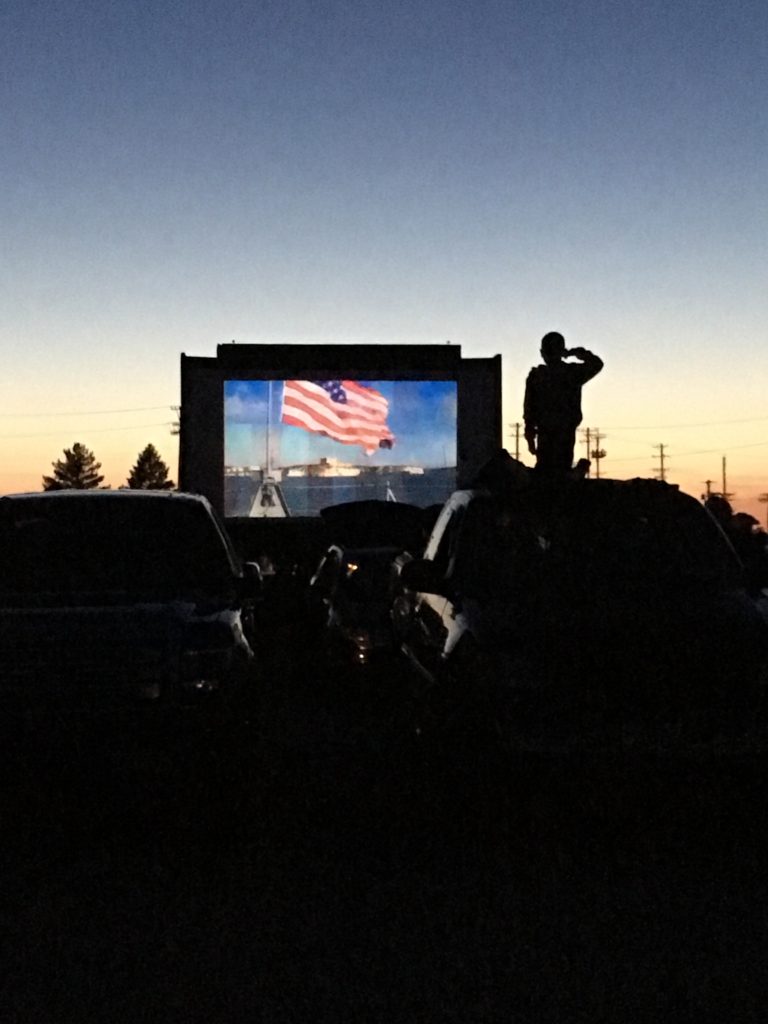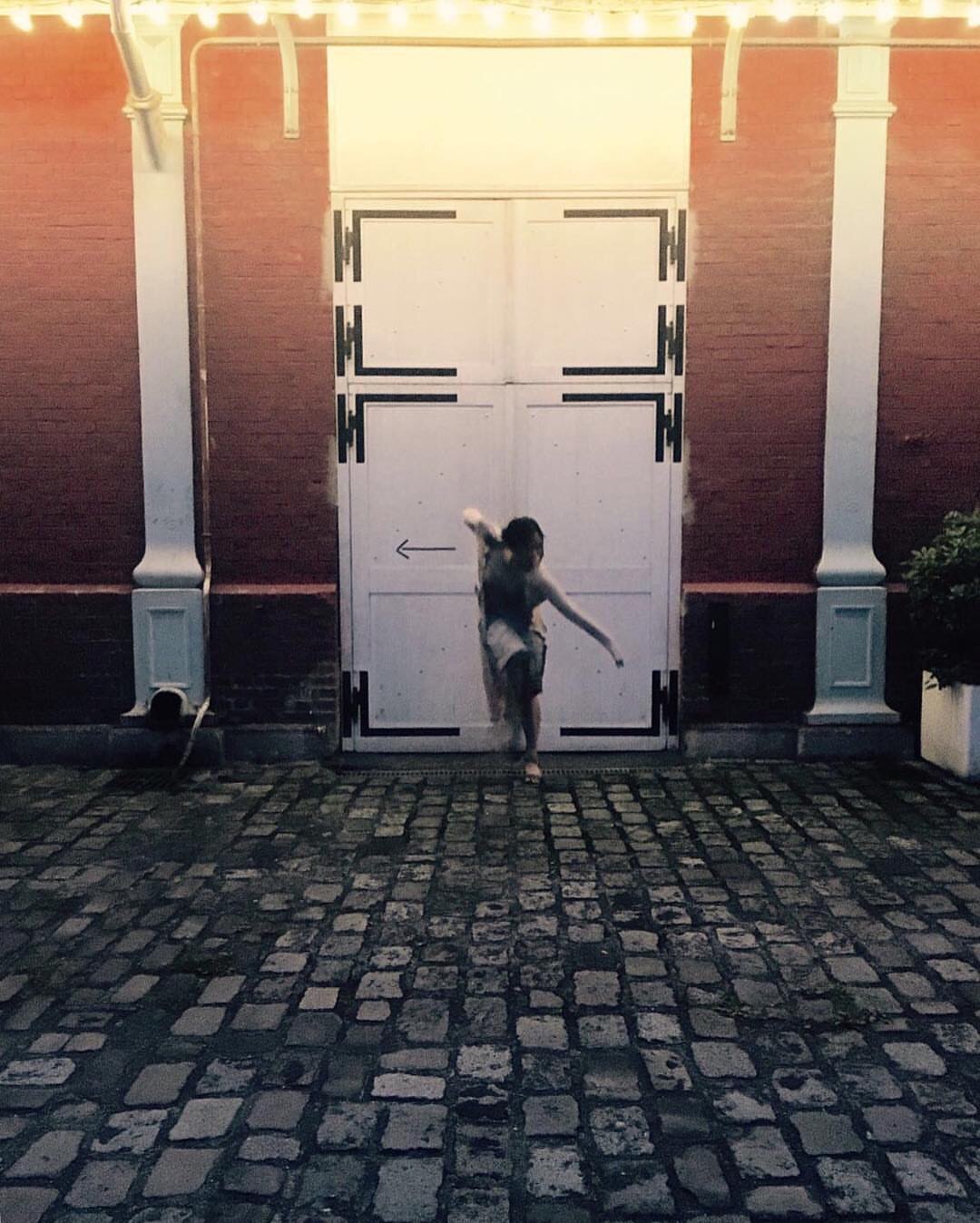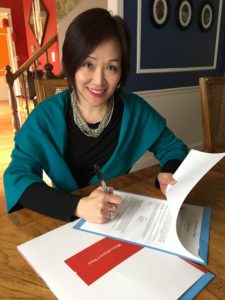No one likes to talk about money.
I mean we/I like to talk about it in the abstract. We can talk about it in terms of statistics (Women’s Equal Pay Day) or generalities (tax brackets) but there is a degree of taboo in talking about the nitty gritty. Because of what I do (work for a religious non-profit where I raise my entire salary through donations) many of my donors know about how much I could make and some ask how much I actually make.
Raising your own salary does a number on your soul. Some of it is messy in a “I know this is holy work” way and some of it is just plain gross. When people decline to give or stop giving to my support, I’m not supposed to take it personally but sometimes I do. I’m supposed to trust that it’s all in God’s hands. Some days I believe that. Some days I don’t because the bills are in my hands. There are also other layers because of gender and culture. If you grew up in the Church, think of the missionary families you or your church has supported. My husband is not the one called to vocational ministry; I am. Now, who supports the family? See? Layers.
I think many of us have a complicated relationship with money and how it isn’t supposed to be everything but we know it’s something. As Christians we are taught that we can’t have two masters, but personally the interpretation and application of that gets even messier when we remember America’s sinful relationship with slavery, mastery, and money – the Church included. As the child of immigrants, money was a means to stability and safety in a way I could not fully understand as a child. I can still sense that tenuous relationship between faith and security when my parents express their disappointment in how little my job currently pays. I have to actively remind myself they aren’t disappointed with me. They are disappointed in a system that doesn’t pay me what they think I am worth.
Which has gotten me thinking about my side-gig. I am a writer and speaker, and I often get paid for those opportunities because they are also jobs. It is work to write and/or speak/guest preach/present/teach/train. More often than not, I get paid very little or am asked to do it for free.
Corporate trainers, corporate editors, pastors, teachers all get paid. It’s fairly easy with a few keystrokes to find out the salary range in the school district my children attend. I can ask friends what their churches pay their pastors. My friends who are in the hiring loop in the business sector openly share starting salary ranges.
It’s a little more awkward in the Christian speakers circuit. Yes, there is a circuit -many circuits that overlap, run parallel, etc. And it’s a business, which is weird because it is also ministry and vocation and calling and all sorts of spiritual terms that make it that much more difficult to talk about MONEY.
So, I am going to do something awkward. I’m going to talk about money. My money. (This is where I am getting ready to duck and to read/hear comments about how I should be grateful, how that is too much, how nice it would be to make that kind of money, etc. Deep breath.)
I have already heard all of those things. I am tired of being asked to do what I do for free because it’s ministry, because I am a woman and not the one supporting my family, because it’s for a good cause, or because it’s a great opportunity to increase my platform. I have been told that my going rate is too high, that I should take what is offered, that organizers were surprised I would ask for money, that I am not well-known enough to have a rate, etc.
My going rate for a day is $1500 plus travel, lodging, meals. I fly coach. I will drink instant coffee. I don’t have to check in luggage. I won’t, however, guarantee I will be wearing something with a waistband, a collar, or pockets (male sound people often don’t know what to do with me).
I have never received my going rate. And in conversations with many other WOC who do what I do, we often are grossly underpaid.
YES, I KNOW THAT MANY PEOPLE ARE GROSSLY UNDERPAID. That is not my point. I am talking about Christian POC and specifically WOC who are being asked to lead, preach, speak, train, etc. and are being asked to work, to do what our white Christian counterparts can’t do, but not being paid for it and being told to be grateful.
I have been in vocational ministry for almost 20 years. I oversaw ministry involving 300+ students at a Big Ten university. My writing credits include a book, two devotionals, a contribution to a monograph, and five years of bylines as a newspaper reporter. As a 1.5 generation Korean American immigrant now in the sandwich generation who paid her and her husband’s student loans off so that we could now take on parent loans for our oldest child my lived experience may actually more “universal” than many white speakers.
Now, I set my initial going rate several years ago at $1,000/day at the advice of a mentor – an older, very learned, seminary professor, theologian, international speaker-type. He recommended no less because it isn’t just about the talk I’m being asked to give. He reminded me that it is my lived experience, expertise, time away from my day job and family, and preparation that needs to be considered. He told me, “Kathy, you are worth at least that per day.” He told me I might not get paid that much but that I needed to decide how much my time was worth. He also was honest and told me that as a woman of color I couldn’t be “good” like most white speakers, particularly male speakers. He told me that I had to be better than good because that is the unjust reality.
I knew the part about being better than good. That message was engrained in me by my grandmother and parents. The message was always “KyoungAh, you have to be better/smarter than Americans (translation: white people) because that is the only way they will see you almost as equal.
But the dollar amount? $1,000 a day? For doing something that I actually love doing? Something I’ve been told that I am fairly good (maybe better than good) at doing?
I was speechless.
And then I started asking around and realized I am worth that. Good grief. I am worth more than that, but again a good Christian Korean American with a uterus and breasts does not talk about worth in connection to money. The message, direct and indirect, is that I should be grateful for whatever comes my way like the birds of the air. The message is that I should be grateful to speak from my unique lived experience as a Korean American woman in ministry to speak/preach/train/teach/share from that unique lens because other speakers cannot because they speak from a universal lens.
I and many, if not most, of my sisters of color who do this work are now being told by the Church our stories and perspectives are needed because they are sorely and obviously lacking but we aren’t worth the same money.
Maybe if I hired an agent my agent could do the dirty/awkward work of negotiating speakers fees. Yes, many of your beloved Christian speakers have agents and there are agencies that represent many beloved Christian speakers. Most of those speakers are white men and women. #NotAllAreWhiteChristians but many of them are, and, yes, that is changing. And, yes, I have thought about hiring an agent (so if any of you agents are out there, feel free to contact me though I have also been doing some homework).
But that isn’t the magic wand to drive change. Change will only happen when several things start happening in different spheres at the same time with enough frequency to start forcing, encouraging, inviting change particularly as the Church and Christian conferences wake up to the racial, ethnic, gender, and cultural diversity that exists in the world is rarely reflected on the big and smaller stages, platforms, podiums, and pulpits of our Christian world.
So let me offer a few questions for conference planners, folks who invite guest speakers to preach in their churches or at the church events, etc. to consider as they invite people like me, especially as they are looking to diversify the line-up:
1. What do you pay and offer to your “big name” speakers and consider what it means to pay fairly and justly? Do you negotiate honoraria the same with all of your speakers and worship leaders?
2. Consider what is the person’s expertise and experience worth because that is also what you are investing in and paying for. Many times I get asked to speak on the difficult topics of race and faith. There is a cost to being that person. If you don’t understand that, ask other POC, particularly women of color who speak, preach, lead worship and ask them.
3. If you are inviting someone to be a guest preacher: your church’s preaching teacher’s salary/# of weeks she/he preaches = a good starting point for a guest preacher.
4. Many conferences put a lot of good time, energy, and money into pulling off a “professional” event. Are you paying your professionals accordingly? If you are inviting them to be on the main stage, aren’t they all main stage speakers? Do you think of them as equally important but not pay them equally? Why not?
5. If you lack the skills to fix a leak in your home or building, would you ask a plumber to fix your bathroom for free and tell her/him to be grateful for the opportunity and chance to build her/his reputation? Then why are you asking an entire worship team to do something you can’t do for free?
And for my dear readers who are worship leaders, writers, or speakers, what other questions or suggestions do you have for those who hire, invite, and plan these conferences?



